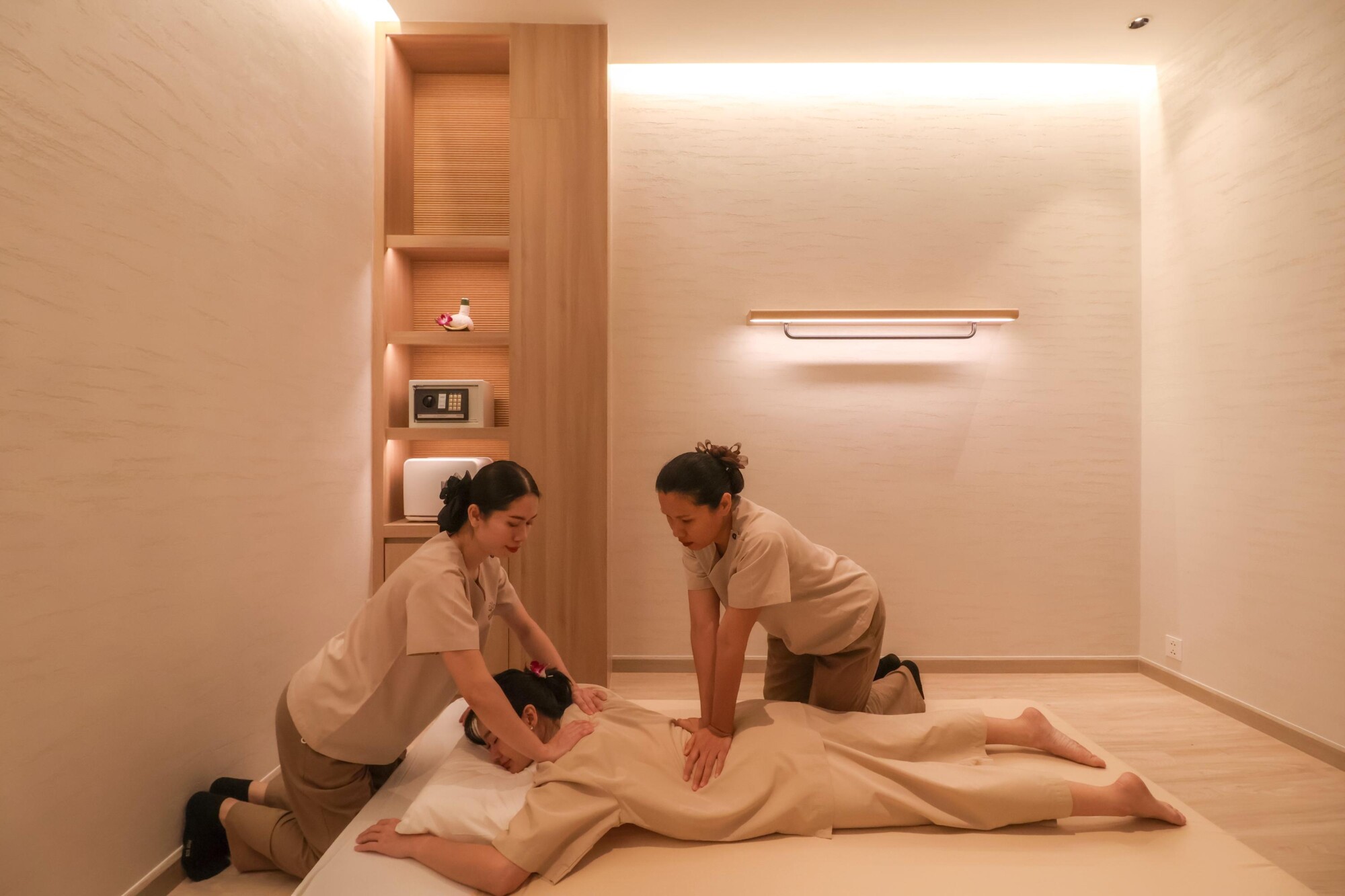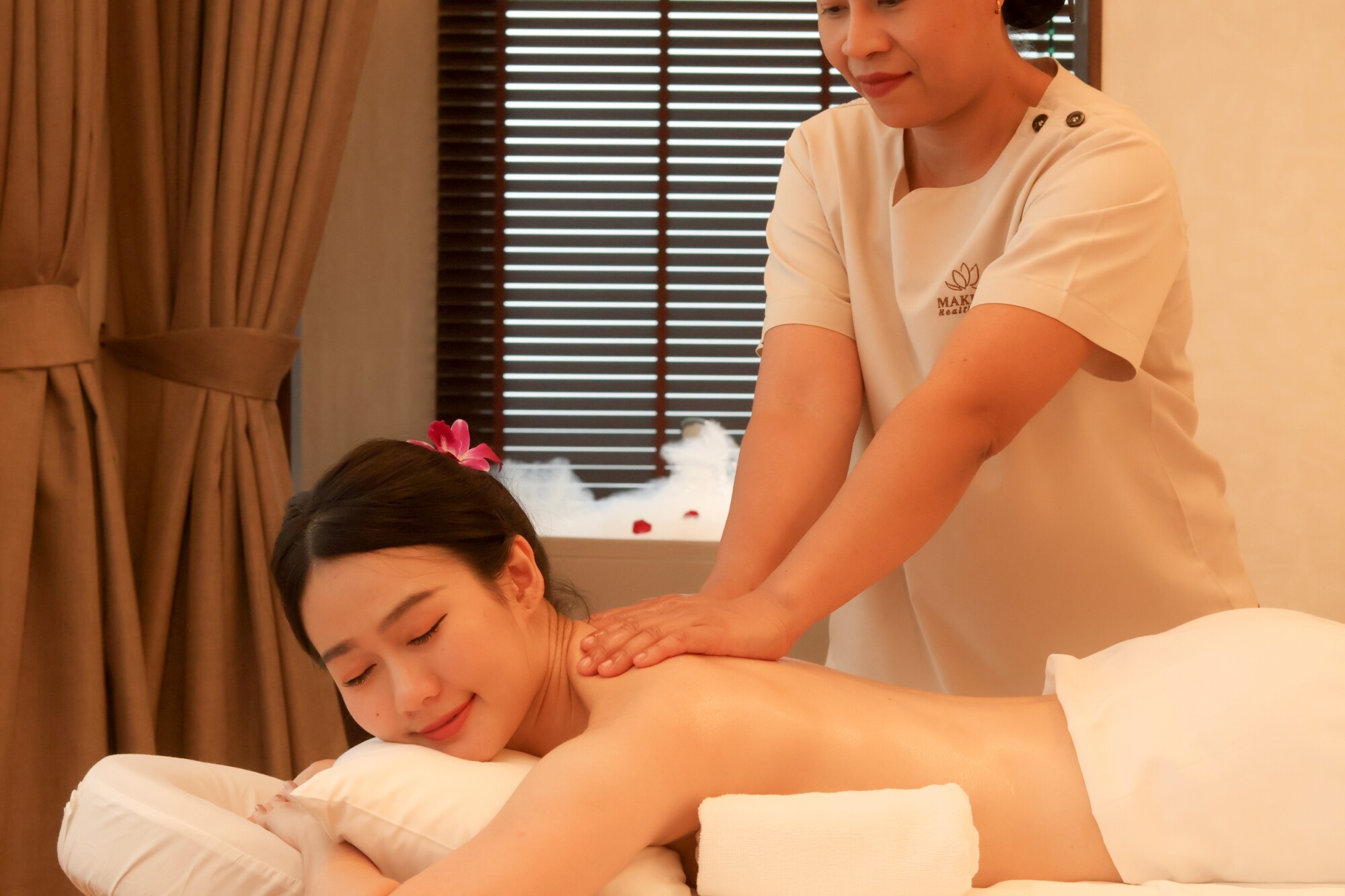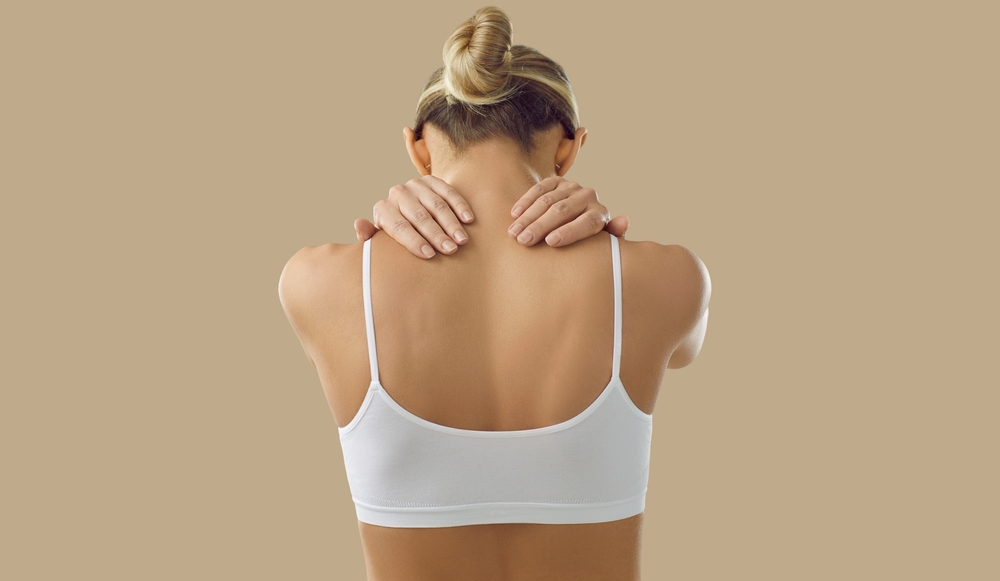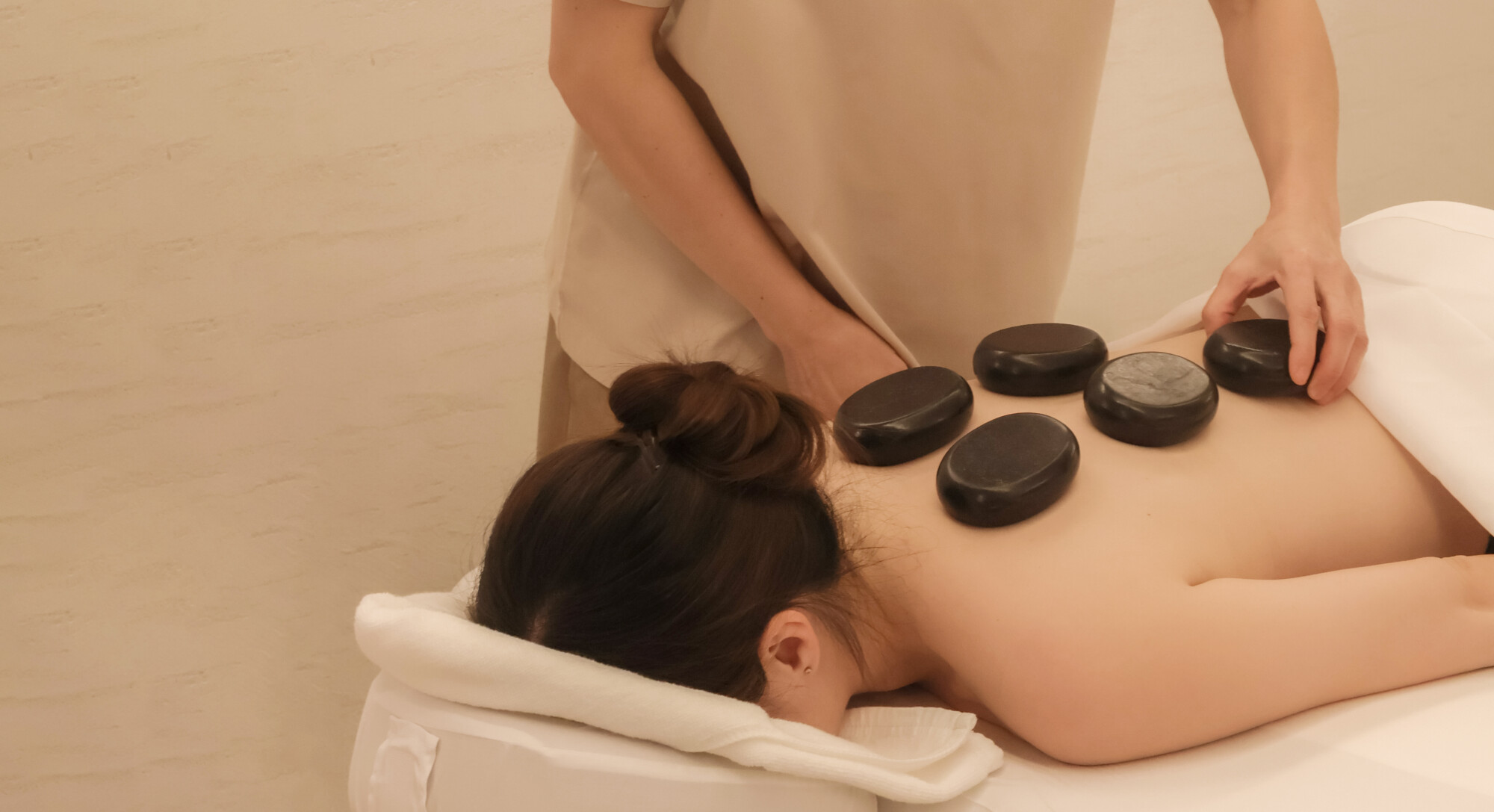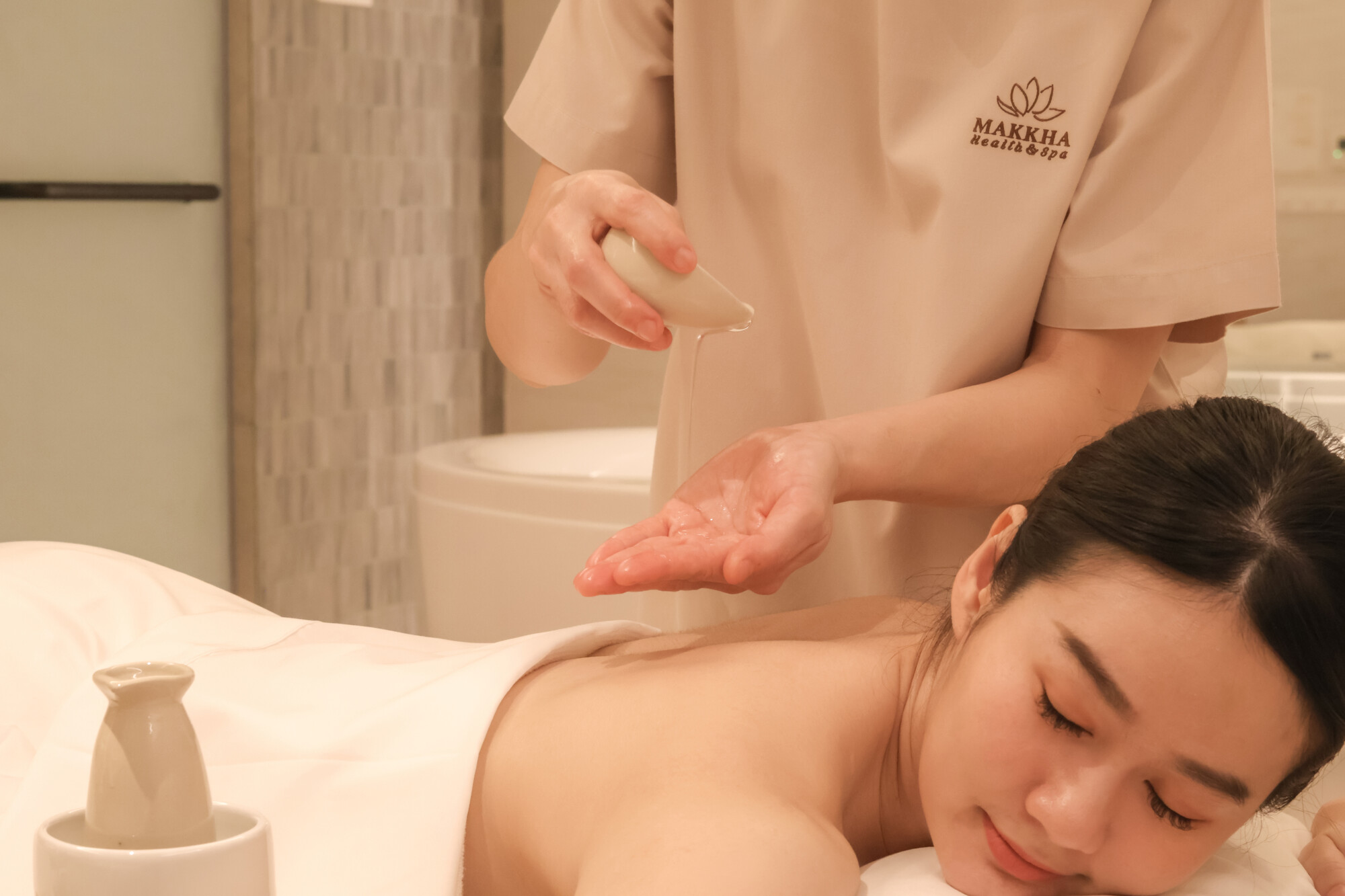What Toxins are Released After a Massage and are They Safe?
A professional massage is a great way to relax. It also enhances and improves the body’s inherent functions. People often say that massages “release toxins,” but what does that really mean? This article explains what happens when you get a massage, what toxins are released after a massage, and why Makkha Health & Spa’s Thai massage in Bangkok, Chiang Mai, Pattaya, and Phuket makes a difference.
What Does “Releasing Toxins” Mean in Massage Therapy?
Massage is widely believed to detoxify your body. Massage therapy, in fact, aids the body’s natural detoxification, like the lymphatic and circulatory systems, instead of directly releasing toxins. Massages assist in removing waste products, including lactic acid and lymph fluid.
You may wonder, are these “toxins” safe? In a physiological context, these substances are not harmful; they’re substances your body already produces and eliminates as a part of your body’s normal processes. A massage helps move them along more efficiently rather than accumulating in your muscles.
What Toxins are Released After a Massage?
Massage therapy, especially a Thai massage, mobilizes fluids and soft tissues, which helps clear metabolic waste. The main byproducts affected by a massage include:
Lactic Acid
Lactic acid builds up after exercise or prolonged muscle tension, causing muscle fatigue, stiffness, and delayed-onset soreness. A massage encourages circulation, helping the body break down lactic acid faster.
Uric Acid
Uric acid is a byproduct of purine metabolism, which is filtered by the kidneys. Too much uric acid can lead to gout, joint pain, and inflammation. A massage enhances the body’s ability to eliminate it.
Creatinine
Creatinine is a waste product from muscle metabolism. If creatinine is chronically elevated, it can signal impaired kidney function. A massage can promote normal circulation and kidney function.
Carbon Dioxide
Carbon dioxide (CO2) is a normal byproduct of cellular respiration. A massage improves blood circulation, which helps improve oxygen delivery and expel CO2 more effectively.
Cellular Debris
Cellular debris includes dead cells, bacteria, and immune waste processed by lymph nodes. Massage stimulates lymphatic drainage, which helps your immune system filter and remove waste naturally.
Inflammatory Byproducts (Cytokines)
Cytokines are released during tissue repair and inflammation. If they accumulate, they can cause tissue damage or persistent pain. A massage potentially reduces chronic inflammation.
Excess Cortisol
While not a byproduct, the stress hormone cortisol is released in response to stress. Chronic high levels of cortisol contribute to insomnia, anxiety, and immune suppression. A massage helps lower cortisol to encourage relaxation and mental clarity.
Is It Safe to Feel Unwell After a Massage?
Some people experience mild soreness or fatigue after a massage, especially after a deep tissue massage or Thai massage session. The mild soreness or stiffness is similar to a post-workout soreness and is usually temporary and part of the adjustment process as circulation and lymphatic flow increase. In some cases, some people may get a headache or fatigue if they’re dehydrated.
These effects typically pass within 24 hours, and recovery can be improved by drinking water and resting. Massages by trained therapists at Makkha Health & Spa are performed safely to minimize discomfort while maximizing benefits.
How to Support Your Body After a Massage
These simple steps can help your body recover smoothly:
- Drink water before and after: Rehydrate to help your body flush out metabolic waste.
- Rest if you feel tired: Your body is rebalancing and may need extra downtime.
- Have a warm shower and do some light stretching: These can help ease minor soreness and help muscles stay relaxed.
- Avoid alcohol and caffeine: These can dehydrate you and slow down your recovery, so avoid them immediately after your massage.
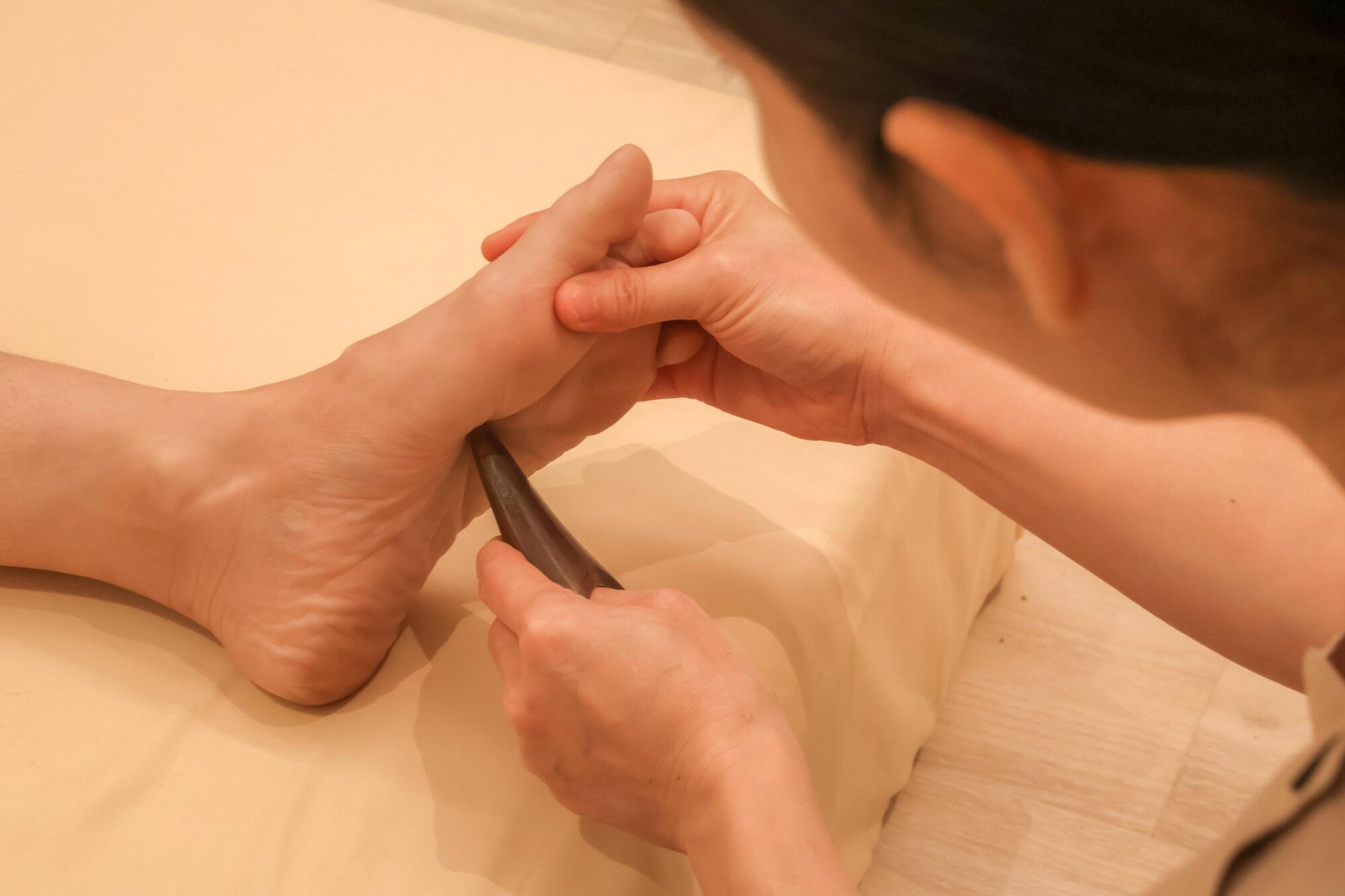
Professional Massage Treatment at Makkha Health & Spa
A safe, restorative Thai massage depends on your therapist’s skill and how conducive the environment is. At Makkha Health & Spa, our trained therapists are experienced in authentic Thai massage techniques and are responsive to our clients’ needs and preferences. Our therapists understand anatomy, pressure points, and proper techniques, giving the right level of pressure for safe and effective results.
When you choose a Thai massage in Bangkok, Chiang Mai, Pattaya, and Phuket, we provide tranquil, sophisticated settings ideal for relaxation. Choosing a reputable spa matters when it comes to comfort and overall experience. Book your massage today and experience a safe and deeply restorative massage.
References:
- How Massage Therapy Releases Toxins from Muscles. Retrieved on 29 September 2025 from https://www.focusphysiotherapy.com/massage-therapy-releases-toxins-body/
- What Toxins are Released After Massage? Types and Effects. Retrieved on 29 September 2025 from https://www.aiam.edu/massage-therapy/what-toxins-are-released-after-massage/

